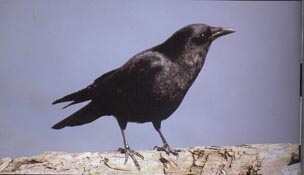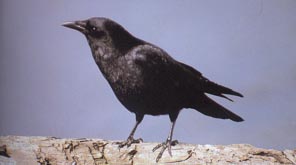 _____________________________________________________________________________
_____________________________________________________________________________
DECEMBER
2001
ALBUQUERQUE,
NEW MEXICO
DECONSTRUCTION THE LIGHT
I will be the first Ph.D. in my family; I am extremely fortunate and grateful
for that. Neither my mother nor my father were provided the chance to go
past the first grade in Puerto Rico, but I just finished the first year
of a Ph.D. program in Medical Sociology and Race and Ethnicity. None of
my six older brothers and sisters made it this far. I will graduate in
may 2004.
I came to the doctoral program in sociology at the University of New Mexico,
after having earned two master's degrees. Before that I was a public administrator.
My mother and father would have been very proud of me. My children are.
However, writing these thoughts gives me pause. I think of the how unlikely
a candidate for these merits I was as a youth. If someone had predicted
my future based on my past, they would have prophesied a bleak one. I was
a lost kid.
I was born in Manati, Puerto Rico, but I grew up on the corner of 109th
Street and Fifth Avenue in Spanish Harlem, New York. Growing up in Harlem
has been compared to growing up in Vietnam during the war years. I can
attest to that: Most of my childhood friends and two brother are dead from
combat in Harlem. I was nearly a casualty too. By the age of nine, I had
done virtually everything an adult might do, and then some. I was an heroin
addict by age of twelve. Not surprisingly, I finished high school in prison.
As a consequence of a gang fight, I was sixteen and doing hard time.
When I
was sent to prison I was in the tenth grade, but I tested at a third grade
educational level. Two years later my eyes were examined because of an
eye injury in a fight. It was discovered that my vision was profoundly
poor: I saw double. I suffered from severe nearsightedness in one eye and
severe farsightedness in the other. I had not ever been examination before
this. I did not realize it was not normal to see double as I had been that
way all my life. Corrective lenses were prescribed and I quickly learned
to read. The years of not reading seemed to induce in me an anemia for
the written word that needed constant feeding. I would literally read anything
- match book covers, toilet paper wrappers. I read five to six books a
week. I read so much and so often that the guys in the joint nicknamed
me "professor."
Nine years
of constantly reading could almost be classified as classical education.
I read the works of most of the Greeks - Aristotle, Homer, Plato, Socrates.
I read the Western European classics - Chaucer, Comte, Dante, Dostoyevsky,
Engel, Kant, Goethe, Hegel, Locke, Marx, Maugham, Milton, Shakespeare.
I read classics from the United States such as the biographies and ideas
of Franklin, John Adams, Carver, Frederick Douglas, Dubois, and Jefferson.
I read about the lives and theories of such people as Adler, Durkheim,
Freud, Fromm, James, Jaspers, Jung, Leaky, Marcus, Maslow, Mead, Menninger,
Masters and Johnson, Rogers, Skinner, Spencer, Sullivan, Weber, Wertheimer,
and many more. I read much contemporary literature of the time such as
Camu, Baldwin, Bellows, Hemingway, Hughs, Fitzgerald, Mailer, O'Hara, Salinger,
Satre. I also took a page from Malcolm X, and for an hour each day I studied
Webster's Collegiate dictionary. These great readings gave me an understanding
of a world I had not know while I was trapped in my mind's prison in Harlem.
Still in
prison, I earned a certificate as a master tailor, and shortly thereafter,
earned an high school equivalency diploma. Not satisfied with that, I went
on to secure a New York State Regents high school diploma in math and science.
Despite the reading and education, I was scared that when released I would
fail. I had a choice to make: either go back to Harlem to the gang and
heroin again, or leave everyone and everything I had known behind to start
my life over elsewhere. I decided not to go back to Harlem and heroin.
I was extremely
fortunate. While still in, I was granted the opportunity to attend a study-release
program at the State University of New York at Plattsburgh. I started classes
in September 1972. I attended classes during the day and returned to prison
in the evening until I was paroled in November of that same year. Freed
from prison, I was still a captive of my past: I had no point of reference
for what I encountered when released. Talk about anomie!
I was unprepared
for the emotional rigors of re-entry to an environment so different from
prison and Harlem that I could have been on another world. Without exaggeration,
the three years in college were more emotionally stressful than the nine
years in prison. I had 15 years to prepare for prison by studying the role
models my brothers and the street of Harlem presented for me. I had three
months to prepare for the alien environment of collegiate life in a White,
middle-class, small, rural town.
Despite marginalization and acute
alienation, I did not succumb to drugs. I managed to eke out about 60 credits
towards the BA before I completely acquiesced to the pressure and ran.
My SUNY transcript reflects the emotional upheaval that I dealt with for
those three years. I did not become a statistic because of the support
of some very loving people. With their encouragement and support, I went
to California.
In San
Diego, I made a conscious decision to secure a job that helped others.
I believed the adage: "in helping others we help ourselves." That philosophy
has never failed me. Three years in college and nine in prison, secured
a job for me helping ex-offenders find work. In that position I learned
a great deal about working adroitly with people as difficult as I had been.
I also learned to work closely with the political structures in order to
secure funding for the branch office to which I had been promoted at Project
JOVE. As a consequence, from there I went to work for a San Diego County
Supervisor as Confidential Investigator and Administrative Assistant in
charge of Social Services. I felt that in this capacity I might be able
to help even more people. I believe I did. I helped establish a number
of social service programs for poor people, and a free clinic.
As a direct
effect of these first two jobs after prison, for the next 20 years I worked
in either social or public service positions. I was an executive director
and executive vice-president, as well as public administrator in county
and city governments. I directly administered budgets in the millions of
dollars and managed as many as 450 employees, including law enforcement
personnel. Ironic.
Throughout
my career I tried, with some success, to make restitution for the criminal
life I led as a child. But there was also a disquietude in me. Despite
my career and life experience, I found that very few people wanted to hear
what I had to say concerning drug and social problems, much less fund programs
I proposed in these areas. I also found myself longing to use the experiences
I gained in prison and throughout life, to help others through teaching.
It was time to answer Langston Hughes: what happens to a dream deferred.
I had made
an half-hearted stab at school now and then during my administrative career,
but in 1995 I decided that time, place, and circumstances were propitious
to go back to college. I did. I finished the bachelor's degree, and continued
into a master's program. I completed two masters degree programs in three
years. The first master's degree is in Sociology with concentrations in
Gender and Race and Ethnicity. The second master's degree is in Geography
with an emphasis on government planning. I graduated both degrees with
honors: I was inducted into Phi Kappa Phi, the national honor society,
and into Gamma Theta Upsilon, the national geography honor society.
I developed
an interest in medical sociology early in 1996 and set as a goal to secure
a Ph.D. in that field. In medical sociology I could see a blending of a
number of issues that were important to me: drug addiction, gender, health
promotion, and race and ethnicity. I decided that I wanted to study under
two people whose work I admired in the field of Medical Sociology. They
were both at the University of New Mexico.
I had begun
teaching sociology and computer technology at the collegiate level during
the time I was completing the second masters. I saved enough money to relocate
to New Mexico where I intended to reside for a year before applying for
admittance in to the doctoral program I had chosen. While I waited for
resident status, the masters in geography and my experience in government
offered me the opportunity to teach at New Mexico State University's Political
Science Department.
The master's
degrees and occupational experience also opened other doors. My thesis
in sociology dealt with poor Latinas. As a consequence, I had the good
fortune to be allowed to create a program to help women trying to get off
welfare. Based on my thesis in geography, I was also called in by the City
Manager of the City of Las Cruses, New Mexico, to design and implement
a customer service program for his line staff.
The women's
program was funded by the US Department of Housing and Urban Development.
I was able to create a program, through grounded research to (ostensibly)
train welfare mothers to transition off welfare. However, what I designed
with their help was what the women knew would work for them regardless
of welfare. It was a multifaceted program that encompassed every aspect
of life skills - self-esteem, behavioral and physical health screening,
world-of-work training, personal finance management, first aid and CPR
training, dressing for success courses - and occupational training leading
to an actual job placement. We had an 85 percent success rate.
I followed
the same action oriented, grounded research format in the program I designed
for the City of Las Cruces. I designed it from the line staff's perspective,
as oppose to the usual focus which is on the customer's needs. The focus
was on the importance of the line staff's jobs to the functioning of the
city. The program proved successful, morale improved and changes suggested
by the employees themselves to improve services were implemented.
I was successful
in getting accepted by the doctoral program I had come to New Mexico to
pursue. At the University of New Mexico I study what I had wished to, and
I am learning the ins and outs of scientific research in mental health.
I am currently being mentored by the faculty under who I had wished to
study, Drs. Philip May and Howard Waitzkin. They have introduced me to
several others faculty who have provided me with invaluable help in my
research projects.
One of
these people, Cathleen Willging, Ph.D., has provided me with the opportunity
to do ethnographic field research that I will use for my dissertation.
I am fulfilling the goals I set for myself in 1996. I will be done in May
2004. I will be the first one in my family to earn a Ph.D.
I have
come a long way from being stoned on the streets of Harlem and fighting
and reading my way through prison. My parents would have been very proud.
My children are.
Any time you click this image________________________________________________________________________________________Any
time you click this image
it will bring you back:
_______________________________________________________________________________________________it
will take you back to the:
 _____________________________________________________________________________
_____________________________________________________________________________